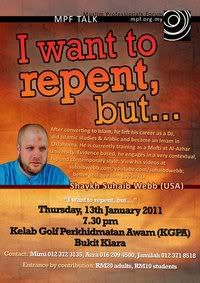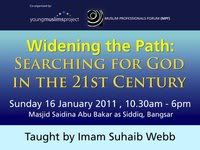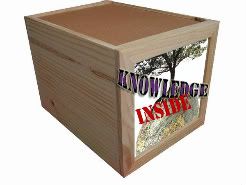Words of Scientists World-wide
Keith L. Moore
(For more clips, see below)Professor Emeritus, Department of Anatomy and Cell Biology, University of Toronto. Distinguished embryologist and the author of several medical textbooks, including Clinically Oriented Anatomy (3rd Edition) and The Developing Human (5th Edition, with T.V.N. Persaud). Dr. Moore was a former President of the Canadian Association of Anatomists, and of the American Association of Clinical Anatomists. He was honoured by the Canadian Association of Anatomists with the prestigious J.C.B. Grant Award and in 1994 he received the Honoured Member Award of the American Association of Clinical Anatomists "for outstanding contributions to the field of clinical anatomy".
Investigations in to the 'alaqa or leech-like stage.
At a conference in Cairo he presented a research paper and stated:
"It has been a great pleasure for me to help clarify statements in the Qur'an about human development. It is clear to me that these statements must have come to Muhammad from God, or Allah, because most of this knowledge was not discovered until many centuries later. This proves to me that Muhammad must have been a messenger of God, or Allah." [1]
Professor Moore also stated that:
"...Because the staging of human embryos is complex, owing to the continuous process of change during development, it is proposed that a new system of classification could be developed using the terms mentioned in the Qur'an and Sunnah. The proposed system is simple, comprehensive, and conforms with present embryological knowledge.
"The intensive studies of the Qur'an and Hadith in the last four years have revealed a system of classifying human embryos that is amazing since it was recorded in the seventh century A.D... the descriptions in the Qur'an cannot be based on scientific knowledge in the seventh century..."[1]
E. Marshall JohnsonProfessor and Chairman of the Department of Anatomy and Developmental Biology, and Director of the Daniel Baugh Institute, Thomas Jefferson University, Philadelphia, Pennsylvania, USA. Author of over 200 publications. Former President of the Teratology Society among other accomplishments. Professor Johnson began to take an interest in the scientific signs in the Qur'an at the 7th Saudi Medical Conference (1982), when a special committee was formed to investigate scientific signs in the Qur'an and Hadith. At first, Professor Johnson refused to accept the existence of such verses in the Qur'an and Hadith. But after a dicussuion with Sheikh Zindani he took an interest and concentrated his research on the internal as well as external development of the fetus."...in summary, the Qur'an describes not only the development of external form, but emphasises also the internal stages, the stages inside the embryo, of its creation and development, emphasising major events recognised by contemporary science."
"As a scientist, I can only deal with things which I can specifically see. I can understand embryology and developmental biology. I can understand the words that are translated to me from the Qur'an. As I gave the example before, if I were to transpose myself into that era, knowing what I do today and describing things, I could not describe the things that were described...
I see no evidence to refute the concept that this individual Muhammad had to be developing this information from some place... so I see nothing here in conflict with the concept that divine intervention was involved in what he was able to write..." [1]
T.V.N. PersaudProfessor of Anatomy, and Professor of Paediatrics and Child Health, University of Manitoba, Winnipeg, Manitoba, Canada. Author and editor of over 20 books, and has published over 181 scientific papers. Co-author of The Developing Human (5th Edition, with Keith L. Moore) He received the J.C.B. Grant Award in 1991. Professor Peraud presented several research papers.
We're talking about 1400 years ago, you have some illiterate person making profound statements that are amazingly accurate, of a scientific nature...
I personally can't see how this could be mere chance, there are too many accuracies and like Dr. Moore, I have no difficulty in my mind reconciling that this is a divine inspiration or revelation which lead him to these statements." [1]
Joe Leigh SimpsonProfessor and Chairman of the Department of Obstetrics and Gynaecology, Baylor College of Medicine, Houston, Texas, USA. He is the President of the American Fertility Society. He has received many awards, including the Association of Professors of Obstetrics and Gynaecology Public Recognition Award in 1992. Like many others, Professor Simpson was taken by surprise when he discovered that the Qur'an and Hadith contain verses related to his specialised field of study. When he met with Sheikh Abdul-Majeed A.Zindani, he insisted on verifying the text presented to him from the Qur'an and Hadith.
Gerald C. GoeringerProfessor and Co-ordinator of Medical Embryology in the Department of Cell Biology, School of Medicine, Georgetown University, Washington DC, USA. Sheikh cAbdul-Majeed A.Zindani met with Professor Goeringer and asked him whether in the history of embryology was there any mention of the different stages of embryonic development, or whether there existed any embryological texts at the time of the Prophet. Sheikh Zindani also asked his opinion regarding the terms the Qur'an uses to describe the different phases of fetal development. After several long discussions, he presented a study at the 8th Saudi Medical Conference:
Alfred KronerProfessor of the Department of Geosciences, University of Mainz, Germany. Professor Kroner is one of the world's most famous geologists, becoming well known among his colleague scientists for his criticisms against the theories of some of the major scientists in his field. Sheikh cAbdul-Majeed A. Zindani met with him and presented several Qur'anic verses and Hadith which he studied and commented upon.
"Somebody who did not know something about nuclear physics 1400 years ago could not, I think, be in a position to find out from his own mind for instance that the earth and the heavens had the same origin, or many others of the questions that we have discussed here...
If you combine all these and you combine all these statements that are being made in the Qur'an in terms that relate to the earth and the formation of the earth and science in general, you can basically say that statements made there in many ways are true, they can now be confirmed by scientific methods, and in a way, you can say that the Qur'an is a simple science text book for the simple man. And that many of the statements made in there at that time could not be proven, but that modern scientific methods are now in a position to prove what Muhammad said 1400 years ago." [1]
Yushidi KusanDirector of the Tokyo Observatory, Tokyo, Japan. Sheikh Abdul-Majeed A. Zindani presented a number of Qur'anic verses describing the beginnings of the universe and of the heavens, and the relationship of the earth to the heavens. He expressed his astonishment, saying that the Qur'an describes the universe as seen from the highest observation point, everything is distinct and clear.
Professor ArmstrongProfessor Armstrong works for NASA and is also Professor of Astronomy, University of Kansas, Lawrence, Kansas, USA. Prof. Armstrong was asked a number of questions about Qur'anic verses dealing with his field of specialisation. He was eventually asked, "You have seen and discovered for yourself the true nature of modern Astronomy by means of modern equipment, rockets, and satellites developed by man. You have also seen how the same facts were mentioned by the Qur'an fourteen centuries ago. So what is your opinion?
"That is a difficult question which I have been thinking about since our discussion here. I am impressed at how remarkably some of the ancient writings seem to correspond to modern and recent Astronomy. I am not a sufficient scholar of human history to project myself completely and reliably into the circumstances that 1400 years ago would have prevailed.
Certainly, I would like to leave it at that, that what we have seen is remarkable, it may or may not admit of scientific explanation, there may well have to be something beyond what we understand as ordinary human experience to account for the writings that we have seen." [1]
William HayProfessor of Oceanogprahy, University of Colorado, Boulder, Colorado, USA. Professor Hay is one of the best known marine scientist in the USA. Sheikh cAbdul-Majeed A. Zindani met with him and asked him many questions about the marine surface, the divider between upper and lower sea, and about the ocean floor and marine geology.
And when he was asked about the source of the Qur'an, he replied, "Well, I would think it must be the divine being." [1]
Durja RaoProfessor of Marine Geology teaching at King Abdulaziz University, Jeddah, Saudi Arabia. Sheikh Zindani presented to Prof. Rao many verses dealing with his area of specialisation, and asked: "What do you think of the existence of the scientific information in the Qur'an? How could Prophet Muhammad have known about these facts fourteen centuries ago?
Professor SiavedaProfessor of Marine Geology, Japan. Sheikh Zindani asked him a number of questions in his area of specialisation, and then informed him of the Qur'anic verses and Hadith which mention the same phenomena he spoke of. One of the questions was concerning mountains. Sheikh Zindani asked him about the shape of mountains; and whether they were firmly rooted in the earth. "What is your opinion of what you have seen in the Qur'an and the Sunnah with regard to the secrets of the Universe, which scientists only discovered now?"
Tejatat TejasenChairman of the Department of Anatomy and is the former Dean of the faculty of Medicine, University of Chiang Mai, Chiang Mai, Thailand. Professor Tejasen studied various articles concerning the Qur'an and modern embryology. He spent four days with several scholars, Muslims and non-Muslims, discussing this phenomenon in the Qur'an and Hadith. During the 8th Saudi Medical Conference in Riyadh, Saudi Arabia he stood up and said:
Since the Prophet Muhammad could neither read nor write, Muhammad must be a messenger who relayed this truth which was revealed to him as an enlightenment by the one who is eligible creator. This creator must be God, or Allah.
I think this is the time to say La ilaha illa Allah, there is no god to worship except Allah (God), Muhammad rasoolu Allah, Muhammad is Messenger of Allah...
The most precious thing I have gained from coming to this conference is La ilaha illa Allah, and to have become Muslim." [1]
Dr. Maurice BucailleBorn in 1920, former chief of the Surgical Clinic, University of Paris, has for a long time deeply interested in the correspondences between the teachings of the Holy Scriptures and modern secular knowledge. He is the author of a best-seller, "The Bible, The Qur'an and Science" (1976). His classical studies of the scriptural languages, including Arabic, in association with his knowledge of hieroglyphics, have allowed him to hold a multidisciplinary inquiry, in which his personal contribution as a medical doctor has produced conclusive arguments. His work, "Mummies of the Pharaohs - Modern Medical Investigations" (St. Martins Press, 1990), won a History Prize from the Académie Française and another prize from the French National Academy of Medicine.His other works include: "What is the Origin of Man" (Seghers, 1988), "Moses and Pharaoh, the Hebrews in Egypt", (NTT Mediascope Inc, 1994); and "Réflexions sur le Coran" (Mohamed Talbi & Maurice Bucaille, Seghers, 1989)
"...our knowledge of these disciplines is such, that it is impossible to explain how a text produced at the time of the Qur'an could have contained ideas that have only been discovered in modern times."
"The above observation makes the hypothesis advanced by those who see Muhammad as the author of the Qur'an untenable. How could a man, from being illiterate, become the most important author, in terms of literary merits, in the whole of Arabic literature?
How could he then pronounce truths of a scientific nature that no other human-being could possibly have developed at that time, and all this without once making the slightest error in his pronouncement on the subject?"
* * * * * * * * * * * * * * * * * * * * * * * * * * * * *
Words of Scholars
"A work, then, which calls forth so powerful and seemingly incompatible emotions even in the distant reader - distant as to time, and still more so as a mental development - a work which not only conquers the repugnance which he may begin its perusal, but changes this adverse feeling into astonishment and admiration, such a work must be a wonderful production of the human mind indeed and a problem of the highest interest to every thoughtful observer of the destinies of mankind."
Dr. Steingass, quoted in T.P. Hughes' DICTIONARY OF ISLAM, pp. 526-527.
![]()
"In making the present attempt to improve on the performance of my predecessors, and to produce something which might be accepted as echoing however faintly the sublime rhetoric of the Arabic Koran, I have been at pains to study the intricate and richly varied rhythms which - apart from the message itself - constitute the Koran's undeniable claim to rank amongst the greatest literary masterpieces of mankind... This very characteristic feature - 'that inimitable symphony,' as the believing Pickthall described his Holy Book, 'the very sounds of which move men to tears and ecstasy' - has been almost totally ignored by previous translators; it is therefore not surprising that what they have wrought sounds dull and flat indeed in comparison with the splendidly decorated original."
Arthur J. Arberry, THE KORAN INTERPRETED, London: Oxford University Press, 1964, p. x.
![]()
"Here, therefore, its merits as a literary production should perhaps not be measured by some preconceived maxims of subjective and aesthetic taste, but by the effects which it produced in Muhammad's contemporaries and fellow countrymen. If it spoke so powerfully and convincingly to the hearts of his hearers as to weld hitherto centrifugal and antagonistic elements into one compact and well-organized body, animated by ideas far beyond those which had until now ruled the Arabian mind, then its eloquence was perfect, simply because it created a civilized nation out of savage tribes, and shot a fresh woof into the old warp of history."
Dr. Steingass, quoted in T.P. Hughes' DICTIONARY OF ISLAM, p.528.
![]()
"A totally objective examination of it [the Qur'an] in the light of modern knowledge, leads us to recognize the agreement between the two, as has been already noted on repeated occasions. It makes us deem it quite unthinkable for a man of Muhammad's time to have been the author of such statements on account of the state of knowledge in his day. Such considerations are part of what gives the Qur'anic Revelation its unique place, and forces the impartial scientist to admit his inability to provide an explanation which calls solely upon materialistic reasoning."
Maurice Bucaille, THE QUR'AN AND MODERN SCIENCE, 1981, p. 18.
![]()
"However often we turn to it [the Qur'an] at first disgusting us each time afresh, it soon attracts, astounds, and in the end enforces our reverence... Its style, in accordance with its contents and aim is stern, grand, terrible - ever and anon truly sublime -- Thus this book will go on exercising through all ages a most potent influence."
Goethe, quoted in T.P. Hughes' DICTIONARY OF ISLAM, p. 526.
![]()
"The Koran admittedly occupies an important position among the great religious books of the world. Though the youngest of the epoch-making works belonging to this class of literature, it yields to hardly any in the wonderful effect which it has produced on large masses of men. It has created an all but new phase of human thought and a fresh type of character. It first transformed a number of heterogeneous desert tribes of the Arabian peninsula into a nation of heroes, and then proceeded to create the vast politico-religious organizations of the Muhammadan world which are one of the great forces with which Europe and the East have to reckon today."
G. Margoliouth, Introduction to J.M. Rodwell's, THE KORAN, New York: Everyman's Library, 1977, p. vii.
*Scientists' Comments On The Qur'an are extracts from the video This is the Truth by Sheikh Abdul-Majeed A. al-Zindani, Director, Project of Scientific Miracles in the Qur'an and Hadith, King Abdulaziz University, Jeddah, Saudi Arabia.
Taken from http://www.islamic-awareness.org/Quran/Science/scientists.html
Bibliography
[1] al-Zindani, Abdul-Majeed A, This is the Truth (video tape). Scientific Signs of the Qur'an and Sunnah containing interviews with various scientists. Available in Arabic, English, French, Urdu and Turkish. A full English transcript of this video with illustrations is also available: Al-Rehaili, Abdullah M., This is the Truth, Muslim World League, Makkah al-Mukarrammah, 1995.
[2] Moore, Keith L. and al-Zindani, Abdul-Majeed A., The Developing Human with Islamic Additions, Third Edition, W.B. Saunders Company, Philadelphia, 1982, with Dar Al-Qiblah for Islamic Literature, Jeddah, Saudi Arabia, 1983, page viiic. Limited Edition.
[3] Moore, Keith L., al-Zindani, Abdul-Majeed A., Ahmed Mustafa A, The Qur'an and Modern Science - Correlation Studies, Islamic Academy for Scientific Research, Makkah, Saudi Arabia. Reprinted by World Assembly of Muslim Youth (WAMY), USA., 1990, ISBN 0-9627236-0-6. Collection of papers presented at a symposium sponsored by the Muslim Students Association, University of Illinois, May 1990.
[4] Moore, Keith L.; Johnson, E. Marshall; Persaud, T.V.N.; Goeringer, Gerald C.; Zindani, Abdul-Majeed A.; and Ahmed Mustafa A, Human Development as Described in the Qur'an and Sunnah, Commission on Scientific Signs of the Qur'an and Sunnah, Muslim World League, Makkah Al-Mukarramah, Saudi Arabia, 1992, ISBN 0-9627236-1-4. Collection of papers that were originally presented in the First International Conference on Scientific Signs of the Qur'an and Sunnah, held in Islamabad, Pakistan, 1987, and after some modifications and development, presented in their present form in Dakar, Sengal in July 1991.






